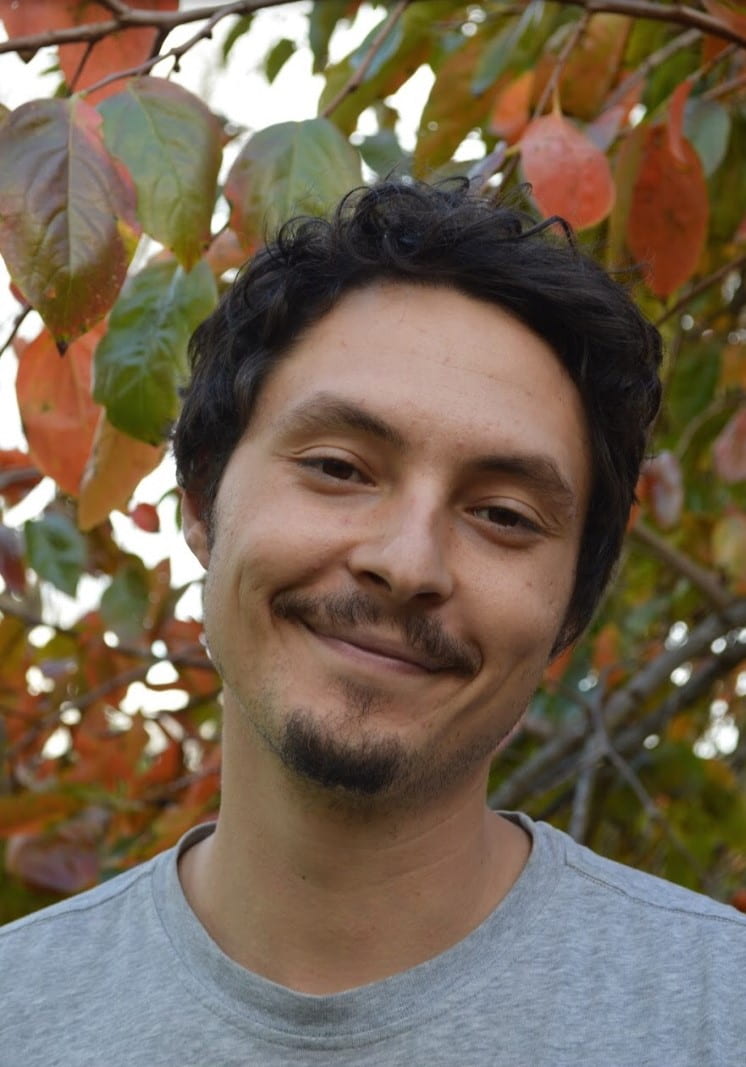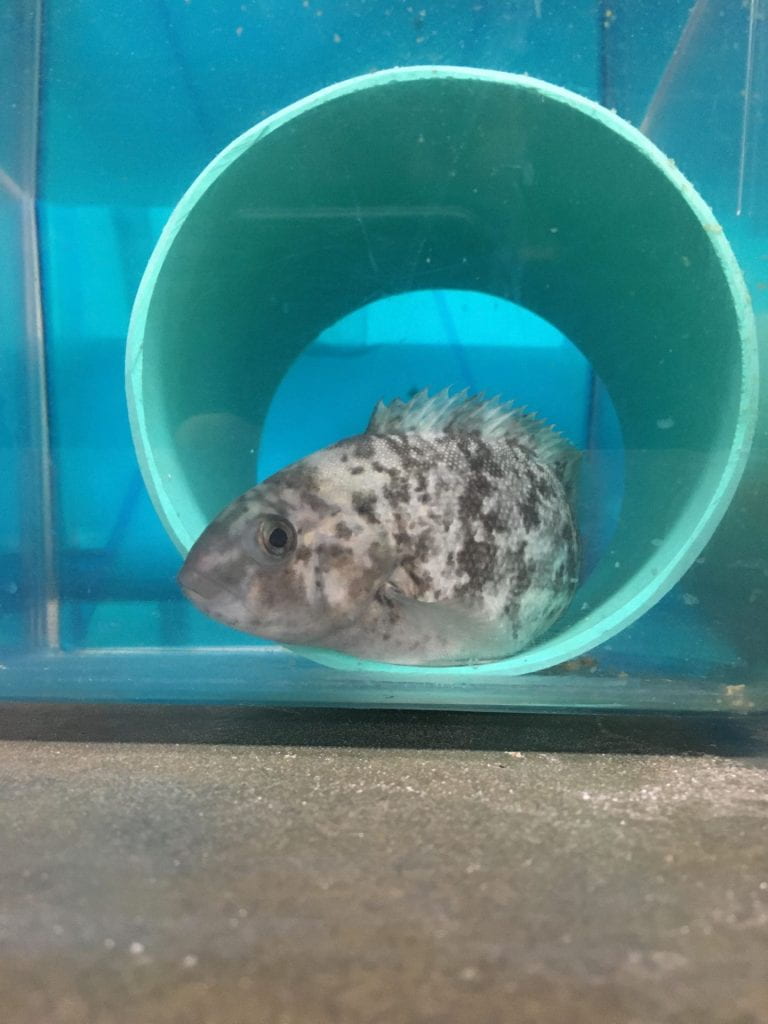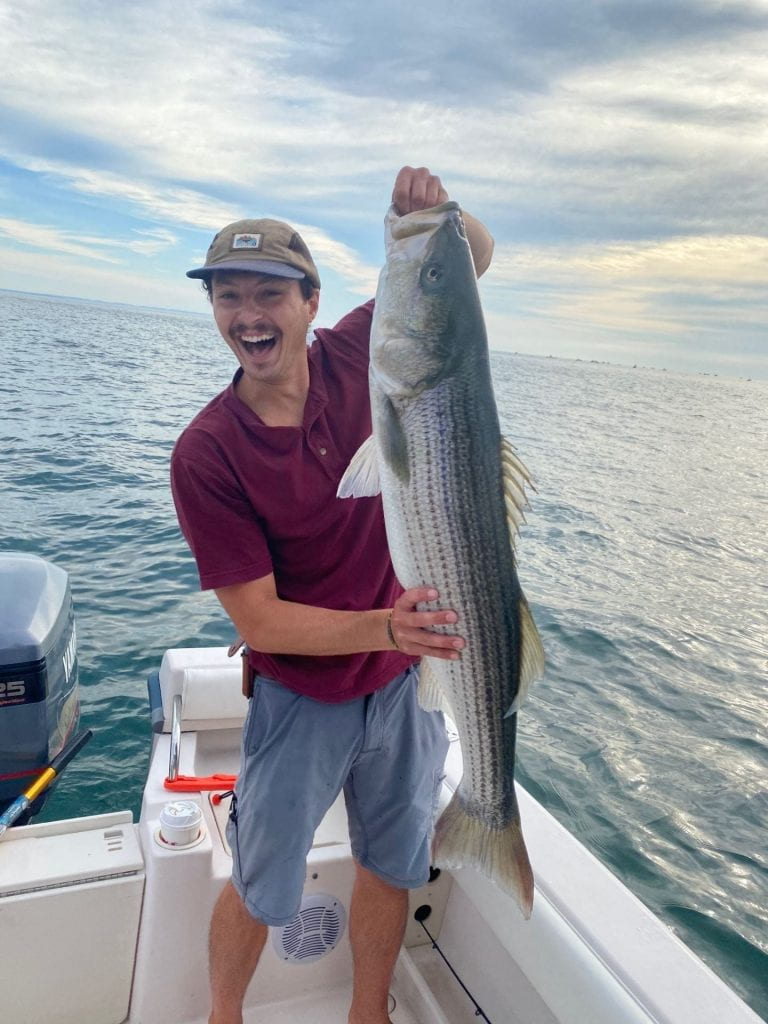“This week we are spotlighting the work of Michael Coute, a student in the School of Marine Science and Technology in the Department of Fisheries Oceanography. Coute’s concentration is in living resource science and management.
Coute is from Dennis Port Massachusetts. He graduated from Massachusetts Maritime Academy in 2017 with an undergraduate degree in marine safety and environmental protection and a minor in marine biology.
“My thesis work relates directly to sustainable finfish farming” Coute says. “I received a grant from the Sustainable Agriculture Research & Education group (Northeast SARE) to look at feeding frequency as it relates to feed consumption in individual juvenile tautog. My thesis also incorporates a feeding trial where alternative feed sources in the form of hydrolysate are mixed with commercial pellets. We used green crabs (an invasive species) and Atlantic longfin squid (highly abundant) to gauge whether or not feed attractants stimulate higher growth rates in tautog in recirculating aquaculture systems. As a global industry, aquaculture companies are consistently seeking out new and more cost-effective feeding strategies that do not rely on wild caught finfish. (Farming fish with wild caught fish is not very sustainable). So our work is aiming to make tautog aquaculture more sustainable and ethical in New England by incorporating alternative feeds and assessing feeding behavior.”


Coute believes in the importance of environmental responsibility and sustainability. He also hopes to address global concerns for food security. “I believe as populations continue to increase around the globe, food security will become an increasing issue for domestic and international communities,” he says. “America imports the majority of the seafood we consume, and our aquaculture industry is pale in comparison to other developing and well-developed nations. We have room to grow in this industry as a country, and I believe the best way forward is through sustainability and ethical initiatives from the start so we don’t have to repeat many of the same mistakes found in large scale monocrop agriculture or factory farming of cattle, poultry, or pork.”
Despite the importance of Coute’s work, it is not without difficulties. “The most challenging aspect of my work is being in the lab as often as I am,” he says. “Even though it’s small scale, it is essentially farming, and therefore needs constant love, attention, cleaning, and maintenance. I’ve only got two hands and so much time.”
“I think people should know that moving forward farmed seafood may become a more common sight in our grocery stores and fish markets.” Coute says. “Tautog farming is not something that is currently underway, but farming tautog has potential to be a thriving industry in New England. What is most important is that people push the boundaries of what our country’s future looks like. Being conscientious of the problems we have ahead, makes us all think about how we can improve.

When it comes to the future and long term goals, Coute is considering going back to school for a phD or starting his own business. “There is more research that can be done with aquaculture and tautog farming specifically, I would like to keep working towards this.” he says.
Outside of his studies Coute enjoys surfing, free diving, fishing, painting, and reading.
Follow Mike on social media at:
Twitter: @MichaelCoute
Instagram: mike_coute
